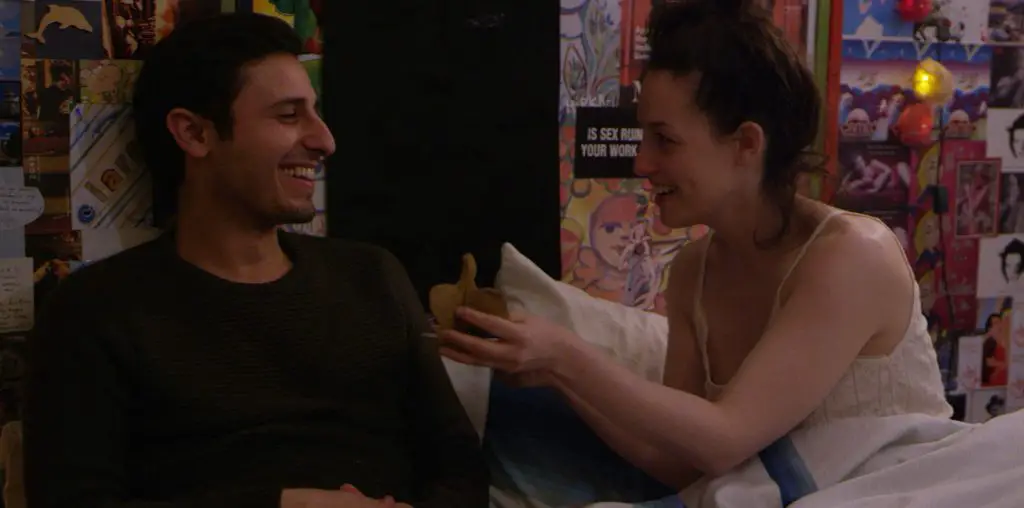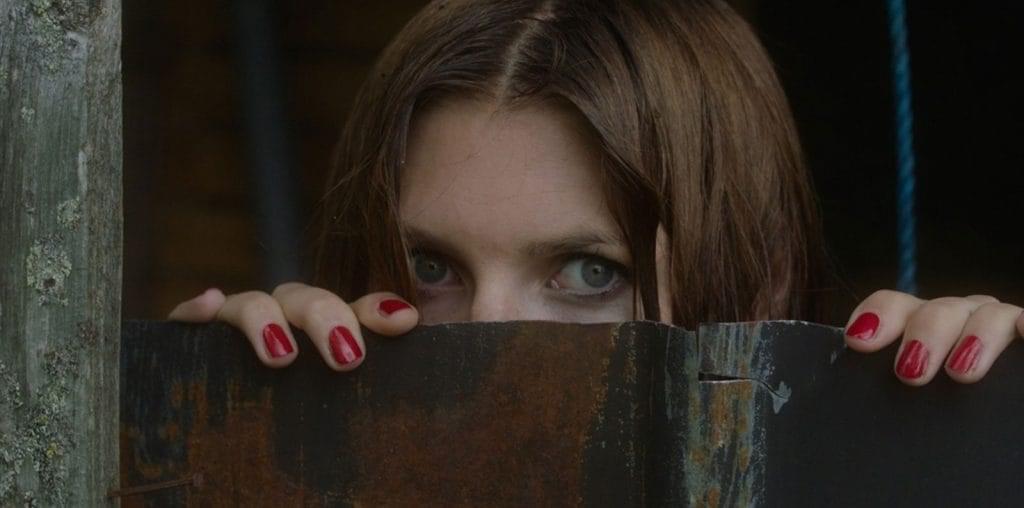
On the evening of July 25th 2001, in a rundown Hollywood Blvd. theater, cinema history was quietly made. It had little to do with the movie and everything to do with the medium. “Jackpot” was shot with the new Sony 24P HD camera. This is the camera that – with the opening of a little number called Star Wars: Episode II ten months from now – is supposed to finally put celluloid out to pasture.
The cavernous Pacific Theatre, where this event took place, has obviously seen better days. Originally built by Warner Bros. in the late 1920s for the premiere of “The Jazz Singer,” the musty old movie palace has been closed since the 1994 Northridge earthquake. The projection booth, however, has been newly outfitted with a Texas Instruments DLP projector, and the auditorium with a top-of-the-line digital sound system. The Pacific Theatre now officially serves as the Digital Cinema Lab, a technology testing ground for USC, Lucasfilm and every major studio.
Thus were several hundred lucky attendees witness to the first film. . .rather, production. . .to be shot and projected in the new format that, if the hype is to be believed, will soon become standard for the entire industry. How strange that the bellwether for this format should be a modest, low-budget road comedy.
Directed by Michæl Polish, from a script he wrote with his brother Mark, “Jackpot” is the story of a minimally talented karaoke singer and his long-suffering manager. It’s short on plot, long on great acting and, like its lead character, slides by on quirky charm.
Sunny Holiday (Jon Gries) has run out on his wife and daughter for a life on the highway, hustling karaoke contests across Middle America. His driver, caretaker and all-around pep-talker Les (Garrett Morris) cuts the deals and collects the winnings. But those winnings are few and far between; Sunny isn’t above collecting pennies in a jar, and his idea of child support is a lottery ticket mailed monthly to his abandoned family.
“Jackpot” seems partly inspired by the terrific but little-seen “Payday” (1972), a rumble-tumble portrait of a smalltime country singer. That manically energetic film boasted a volcanic performance by Rip Torn as Maury Dann, a sweat-streaked troubadour on an epic trip of self-destruction.
On a different sort of trip, “Jackpot” ambles along where “Payday” lunged for the jugular. Sunny is an inscrutable fellow; as one character teases him, “For a guy named Sunny, you’re not very bright.” But he is clearly in his element onstage, singing George Jones’ “Grand Tour” as if his life depends on it, which of course it does.
For some reason, though, manager Les keeps insisting that Sunny – whose look tends towards muttonchops and cowboy attire – give the people what they want: namely, cheesy hits of the ’80s. Les’ motivation here goes unexplained, but plenty of easy comedy results as Sunny struggles through “True” and “Eyes Without a Face,” never failing to walk away empty-handed. And Morris is never more incisive than when he explains to Sunny the proper way to deliver Rupert Holmes’ “Escape” (yes, the dreaded Piña Colada Song) to a roomful of half-lit hayseeds.
In fact, as charming as Gries can be as Sunny, “Jackpot” is entirely Garrett Morris’ show. Who knew that this veteran of Saturday Night Live’s first few seasons would bloom into such a subtly brilliant actor 25 years on? His Les is proud and funny, both self-aware and deeply deluded. He gets most of the best lines, and renders them in with mesmerizing precision. (Whenever Sunny complains, Les simply replies: “As long as I only take 15% of the money, I only have to take 15% of your s**t.”) God bless the Polish brothers for putting Morris out there – we can only hope that others will follow suit. He gives one of this year’s greatest performances.
Even though “Jackpot” is primarily the story of Sunny the no-account hit-and-run artist, the women make strong impressions: Daryl Hannah, for one, has never shown the kind of icy resolve she does in scenes with her deadbeat husband. And Peggy Lipton, as a one-night stand with a tough streak, still looks lovely 30-plus years after “The Mod Squad.” Her kiss-off line to Sunny is a killer, typical of the movie’s outcroppings of raw sexual dialogue, its off-kilter eroticism.
As with many a picaresque road movie, though, it eventually becomes apparent that “Jackpot” isn’t quite sure where to go with itself. Sunny’s story never really builds to anything much, and the repetitive structure grows wearying. The editing is often busier than it needs to be, with jarring Godardian jump-cuts flashing us forward and back. It seems the filmmakers are trying to jazz up the film’s linear story, but road movies are linear by their very nature, so it’s rather a losing battle.
The Polish brothers’ Twin Falls Idaho (1999) was an auspicious debut, contemplative and quietly moving. It featured heartbreaking performances by the brothers themselves as conjoined twins; the unforgettable image of them sharing a slice of birthday cake was an honest tearjerker. “Jackpot”‘s emotional agenda is unclear. Mostly it’s wryly funny; not exactly Ghost World or Made, but the laughs roll up pretty regularly. But often the story just lacks a certain. . .focus.
But focus is never a problem onscreen. Cinematographer M. David Mullen captures (capturing is the byword now, not filming) images of crystalline clarity, brighter and sharper than ever seen before. Colors pop out like mad, particularly the truly shocking pink of Les’ trusty New Yorker. This new 24P look will surely please all the techno-twits who whine on DVD websites about their terror of film grain. (Hey, some directors happen to like a bit of grain – just ask Steven Soderbergh.) The sharpness, in fact, seems almost unreal; paradoxically, the more we sense the haze of film grain, the more “real” an image appears.
Well, get ready to consign film grain to the 20th century, where the likes of Lucas and Zemeckis seem to think it belongs. Unfortunately, most moviegoers won’t be seeing “Jackpot” with digital projection, as only about 15 theatres nationwide are equipped with the DLP projection system. But even transferred to film, the difference will be plain to see.
However, if you are lucky enough to see “Jackpot” projected digitally, you will be seeing the future, for better or worse. The movie itself may not always hit the big money, but it still pays to get on the road again and check it out. “Jackpot”, by accident or by design, is the real event movie of the summer.

